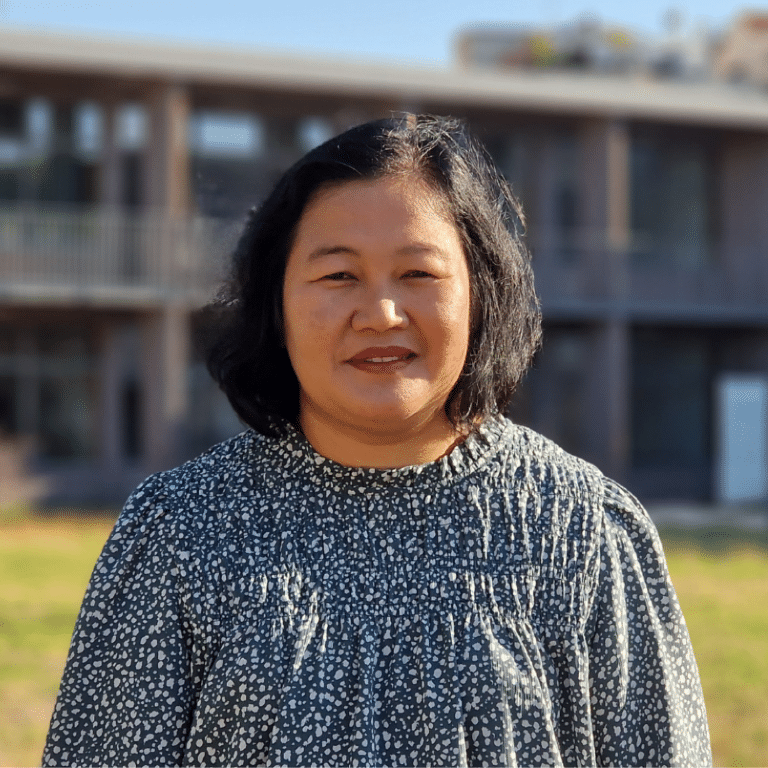
Henri Njangang
Research project
Can financial responses to climate crises affect social dynamics? Analysis of the effect of gender-sensitive climate finance on gender inequalities in Africa.
Project summary
Context and Motivation
In the last two decades, climate change and gender inequality have emerged as two major and interrelated challenges to inclusive development in Africa. Although the continent contributes minimally to global greenhouse gas emissions, accounting for less than 4%, it remains disproportionately affected by the adverse effects of climate change. Rising temperatures, unpredictable weather patterns, droughts, floods, and other extreme climate events have disrupted livelihoods, increased food insecurity, and contributed to population displacement and health crises. Women and girls are especially vulnerable in this context due to pre-existing gender-based inequalities that limit their access to resources, education, healthcare, and decision-making processes.
Gender and climate change are often viewed as distinct policy areas. However, a growing body of literature has started to explore their intersection, highlighting how climate change magnifies existing gender disparities (Desai & Mandal, 2021; Njuki et al., 2023). Women, especially in rural areas, are deeply involved in agriculture and the management of natural resources. These roles expose them directly to the adverse effects of climate change, while systemic inequalities hinder their ability to adapt effectively. This asymmetry in exposure and capacity to respond to climate risks makes the case for targeted climate finance that addresses not just environmental goals, but also social justice, particularly gender equality.
The concept of gender-sensitive climate finance has thus emerged as a pivotal approach in recent climate policy frameworks. Its goal is to ensure that climate financing mechanisms, whether aimed at mitigation or adaptation, explicitly consider gender dynamics. This includes supporting women-led projects, improving access to clean energy and water resources for women, and ensuring their representation in climate governance. Despite the conceptual appeal, there is still limited empirical evidence on the extent to which gender-responsive climate finance contributes to reducing gender inequality in practice, especially in the African context. This research seeks to address this gap.
Research Objectives and Contributions
The primary objective of this project is to evaluate whether and how gender-sensitive climate finance influences gender inequality in African countries. More specifically, the study seeks to answer the following research questions:
- Q1. Does gender-sensitive climate finance lead to measurable improvements in gender equality across dimensions such as employment, education, and health?
- Q2. Through which mechanisms or transmission channels does this effect operate?
- Q3. Are the effects more pronounced for certain types of financing, mitigation versus adaptation?
To investigate these questions, the research focuses on a panel of 42 African countries from 2000 to 2021. Gender inequality is disaggregated into three dimensions: employment (labor force participation gap), education (school enrollment and attainment), and health (maternal health and access to care). This approach allows for a more granular analysis, as gender inequality is a multidimensional construct that cannot be captured by a single index. Additionally, the study uses the UNDP’s Gender Inequality Index (GII) as well as a new composite index constructed using an improved entropy method. Climate finance data are sourced from the OECD-DAC database and categorized into three streams: general gender-sensitive climate finance (GCF), mitigation-specific gender-sensitive finance (GMF), and adaptation-specific gender-sensitive finance (GAF). These are expressed as percentages of national GDP to control for economic size.
This study contributes to four critical areas in the literature. First, it offers new empirical insights into the socio-economic impacts of climate finance, a domain largely focused on environmental outcomes until now (Lee et al., 2022; Njangang et al., 2024). Second, it enriches the growing literature on gender and climate by providing quantitative evidence from the African context, which remains underrepresented. Third, by employing instrumental variable methods, it addresses potential endogeneity concerns and enhances the credibility of causal inference. Fourth, it explores the transmission channels through which gender-sensitive climate finance affects gender inequality, shedding light on the mechanisms, such as improved access to health services, education, and economic opportunities, that mediate this relationship. This analytical depth provides a better understanding of how and why certain gender-focused climate interventions succeed or fail.
Empirical Strategy and Expected Outcomes
To rigorously assess the effect of gender-sensitive climate finance on gender inequality, the study addresses potential endogeneity by employing an instrumental variable strategy inspired by recent empirical literature. Several external instruments are considered to capture exogenous variation in climate finance flows. These include: (i) the share of important votes aligned with donor countries at the United Nations General Assembly, reflecting geopolitical alignment and aid allocation priorities; (ii) a shift-share (Bartik-type) instrument based on historical exposure to donor-specific funding trends; and (iii) the average GDP of G7 countries, used as a proxy for the overall fiscal space and climate finance supply from major donors. These instruments aim to isolate variation in gender-sensitive climate finance that is plausibly unrelated to country-specific gender outcomes.
The analysis covers 42 African countries and controls for key economic and institutional characteristics. The expected outcomes are twofold: first, that gender-sensitive climate finance significantly reduces gender disparities, particularly in education and health; and second, that these effects are mediated through institutional and policy channels such as women’s political participation and access to essential services. Overall, this research highlights the transformative potential of gender-responsive climate finance in promoting not only environmental resilience, but also social equity across Africa.
Biography
Dr. Henri Njangang is a Senior Lecturer in Economics at the University of Dschang and Associate Lecturer at the University of Yaoundé II in Cameroon. With a PhD in Economics, his research spans development economics, energy economics, and the political economy of natural resources. He has published extensively in leading journals such as Energy Economics, Energy Policy, Climate Policy, and Environmental and Resource Economics.
His recent research increasingly focuses on climate finance and its multifaceted implications in developing countries, particularly in Africa. He examines not only the social but also the environmental and institutional dimensions of climate finance, including how gender-sensitive mechanisms, governance quality, and aid effectiveness contribute to resilience and equity. Through this work, he contributes to a growing interdisciplinary field linking climate action with sustainable and inclusive development.



